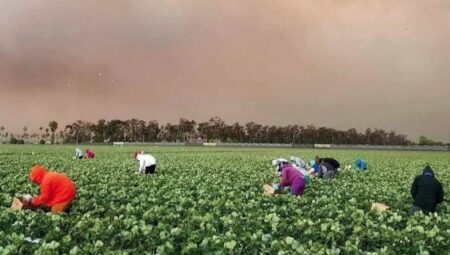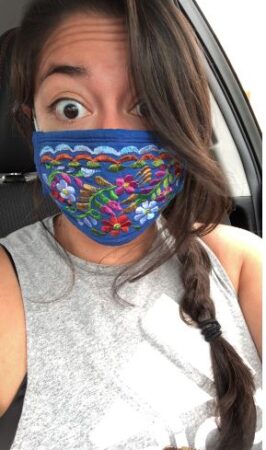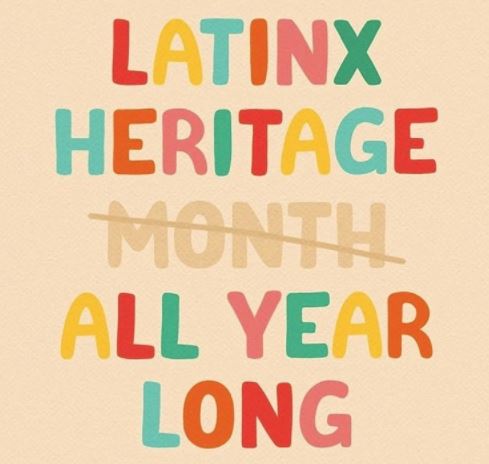By Paulina Mendez
Training Consultant | City of Asheville Office of Equity & Inclusion
Welcome to Hispanic Heritage Month. The celebration of Hispanic Heritage is “marked” from Sept. 15 – Oct. 15. I could go into some more historical information or talk about some of the Latinx greats like Selena, Frida Kahlo, Dolores Huerta, Cesar Chavez, etc. but because Hispanic Heritage should be celebrated every day of the year, I want to use this opportunity to talk about our collective survival. Let me tell you what I mean by that but first, do you know where your food comes from?

Currently, there are primarily Latinx farmworkers on the West Coast picking our food in the
midst of both a pandemic and wildfires. Many are having to make the choice between putting food on their family’s table or risk exposure to COVID-19 while breathing in wildfire smoke. This brings up a couple of things: an economy built on exploitation and environmental justice.
Why do we live in a society where people are having to choose a paycheck over their lives?
One could argue that it is our current capitalistic framework that is shrinking the middle-class and exacerbating the divide between the haves and havenots. Someone else might argue that capitalism allows us to have competition, a free market, and the ability to climb the class mobility ladder. Right here, right now, I’m not going to argue either. I am, however, going to invite us to look around at the inequities caused by poverty despite our race, gender, sexual orientation, etc. and ask ourselves one question: “Is this the best we can do?” I truly hope not. Let’s look at environmental justice and climate change.
When looking at who’s the most affected by climate change, we can see that it’s often people living in the margins (e.g. the poor, people of color, the elderly). If you want to dig deeper on the impacts, check out the Fourth National Climate Assessment, a federal level government report. On a local level, the Pew Research Center found that 62% of Americans say their communities are affected by climate change. Our storms are getting stronger, our heat indexes are hitting record highs, and our wildfires are burning at alarming rates. Again, I ask, is this the best we can do?
I think we can do better. More importantly, I think we have to do better, so please, let’s do better.

Paulina Mendez, she/her/ella, is a Mexican native but longtime resident of the mountains of North Carolina. She is a graduate of UNC Asheville where she studied Political Science and is currently pursuing her Masters in Social Work at Western Carolina University. Paulina is currently the Training Consultant for the City of Asheville’s Office of Equity and Inclusion. She has a passion for equity work and would like to see the Asheville community understand and truly embrace the necessity for collective liberation which would result in equitable and inclusive policies, practices, and systems that benefit the entire community.
